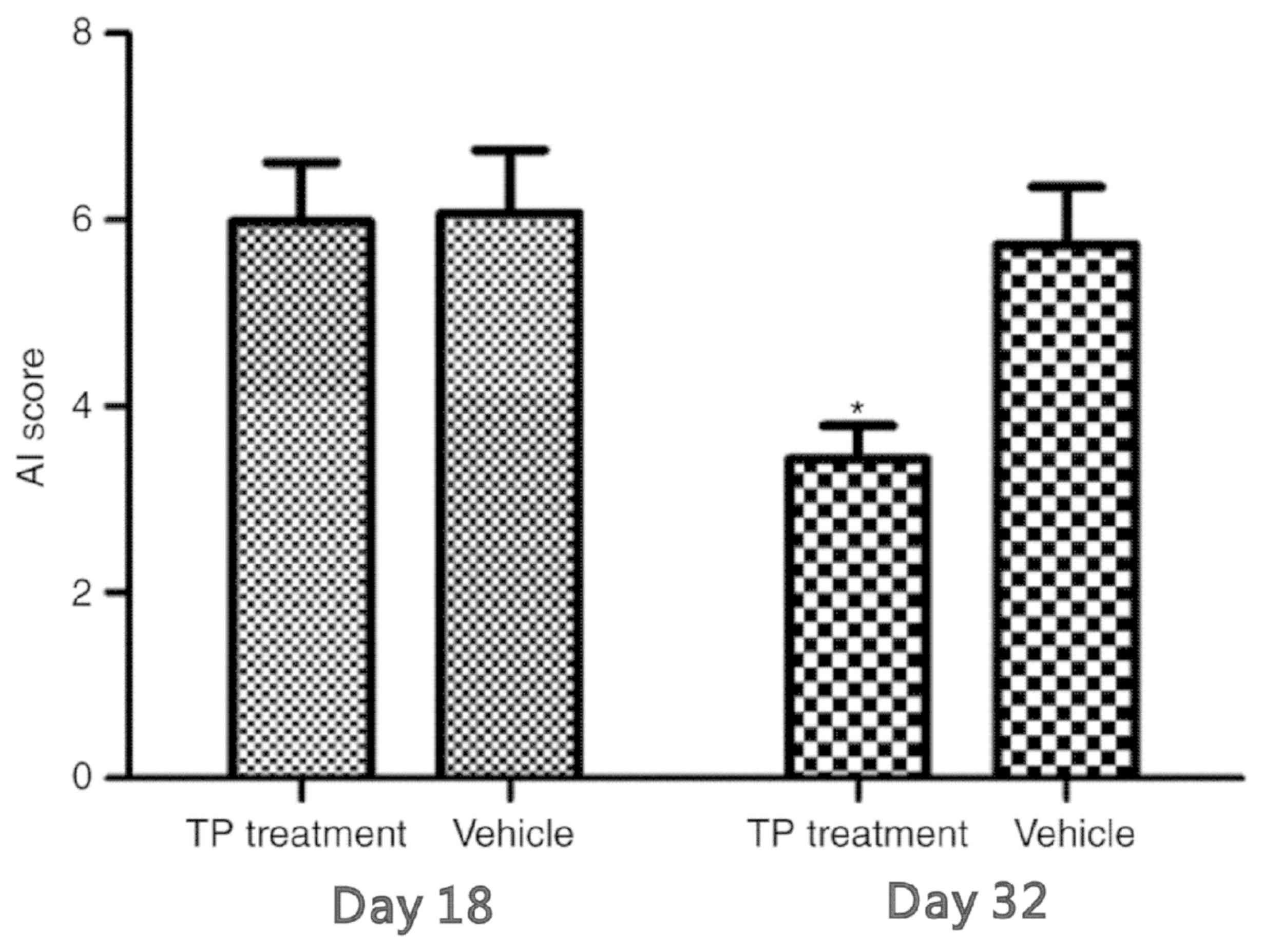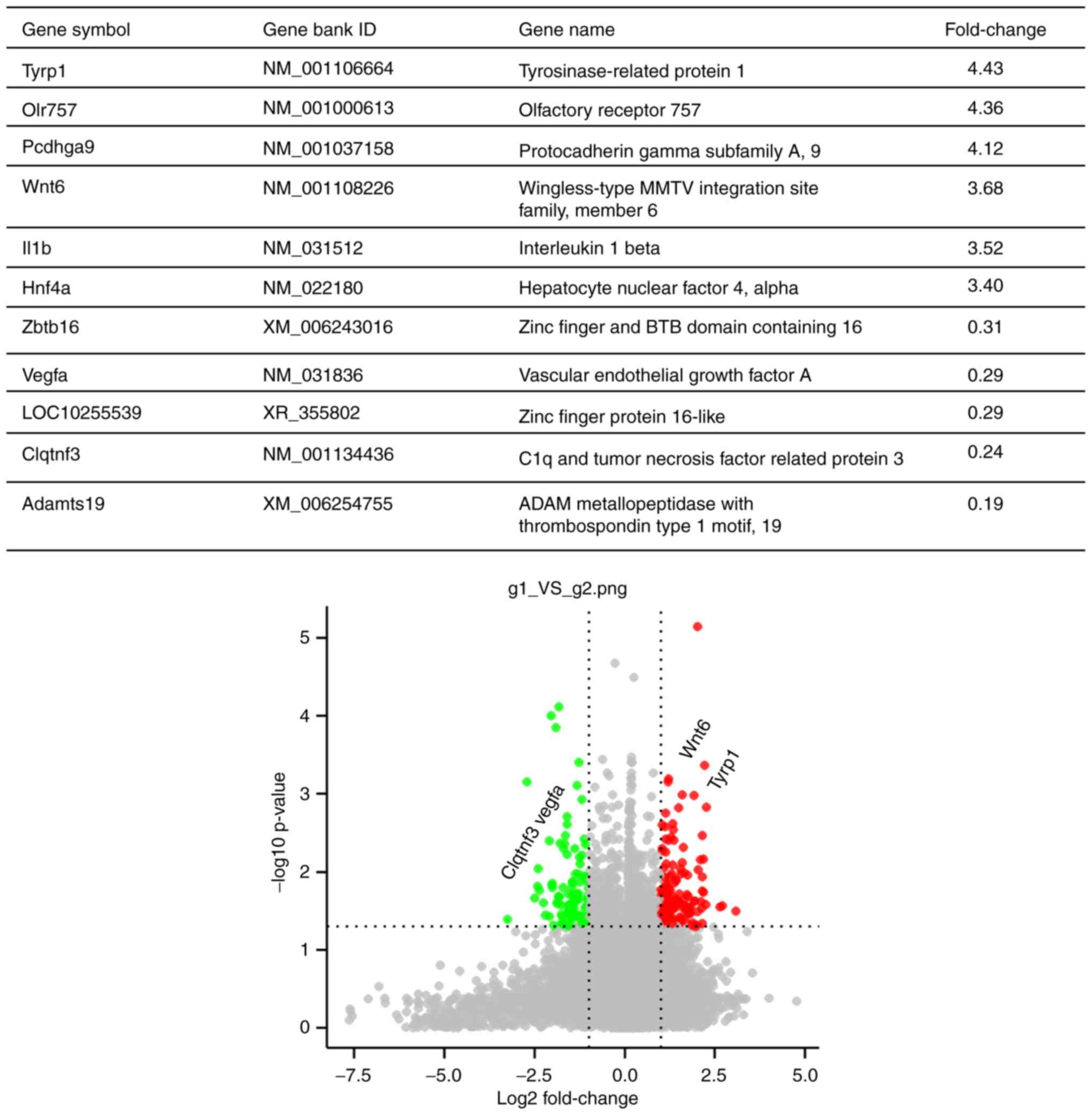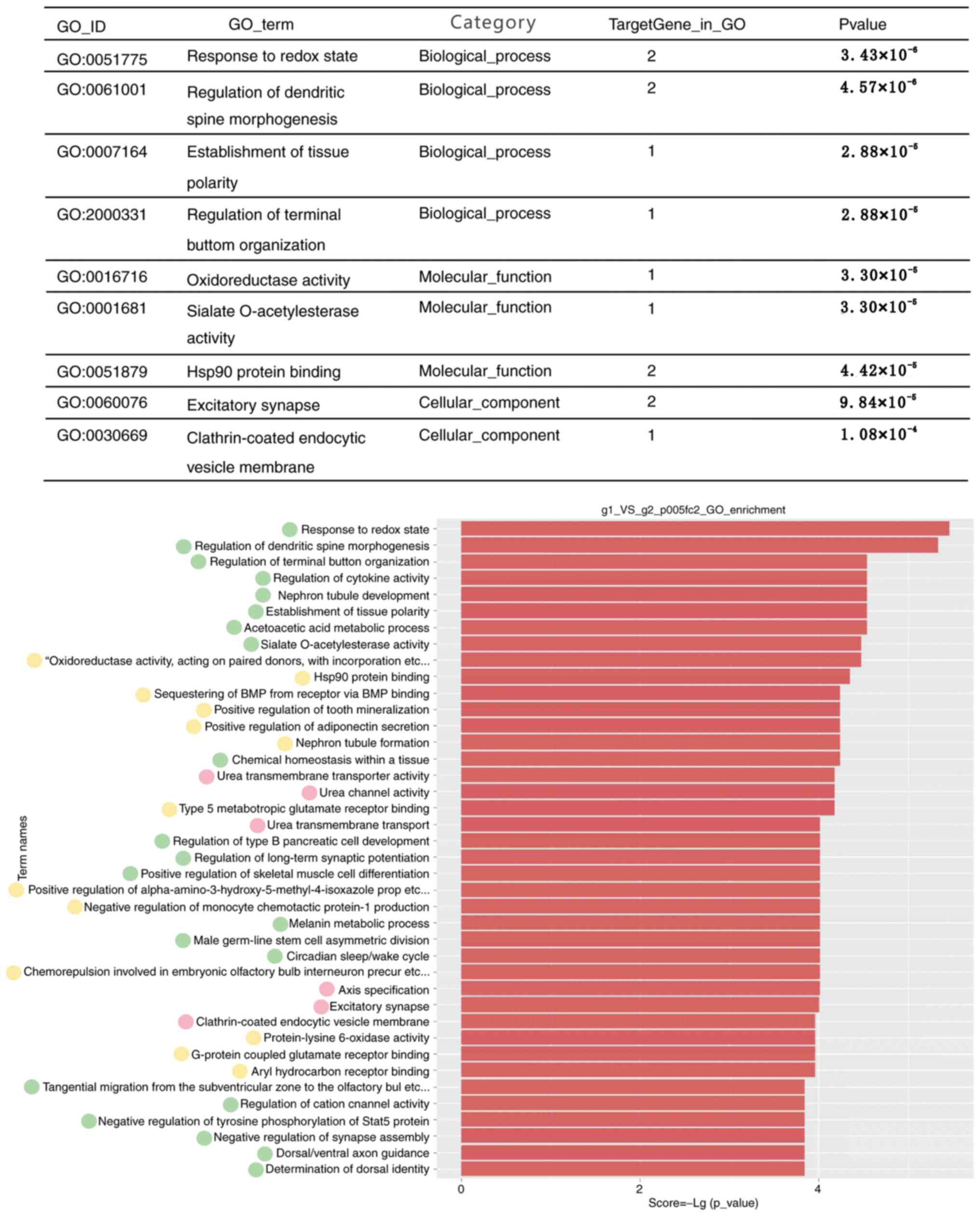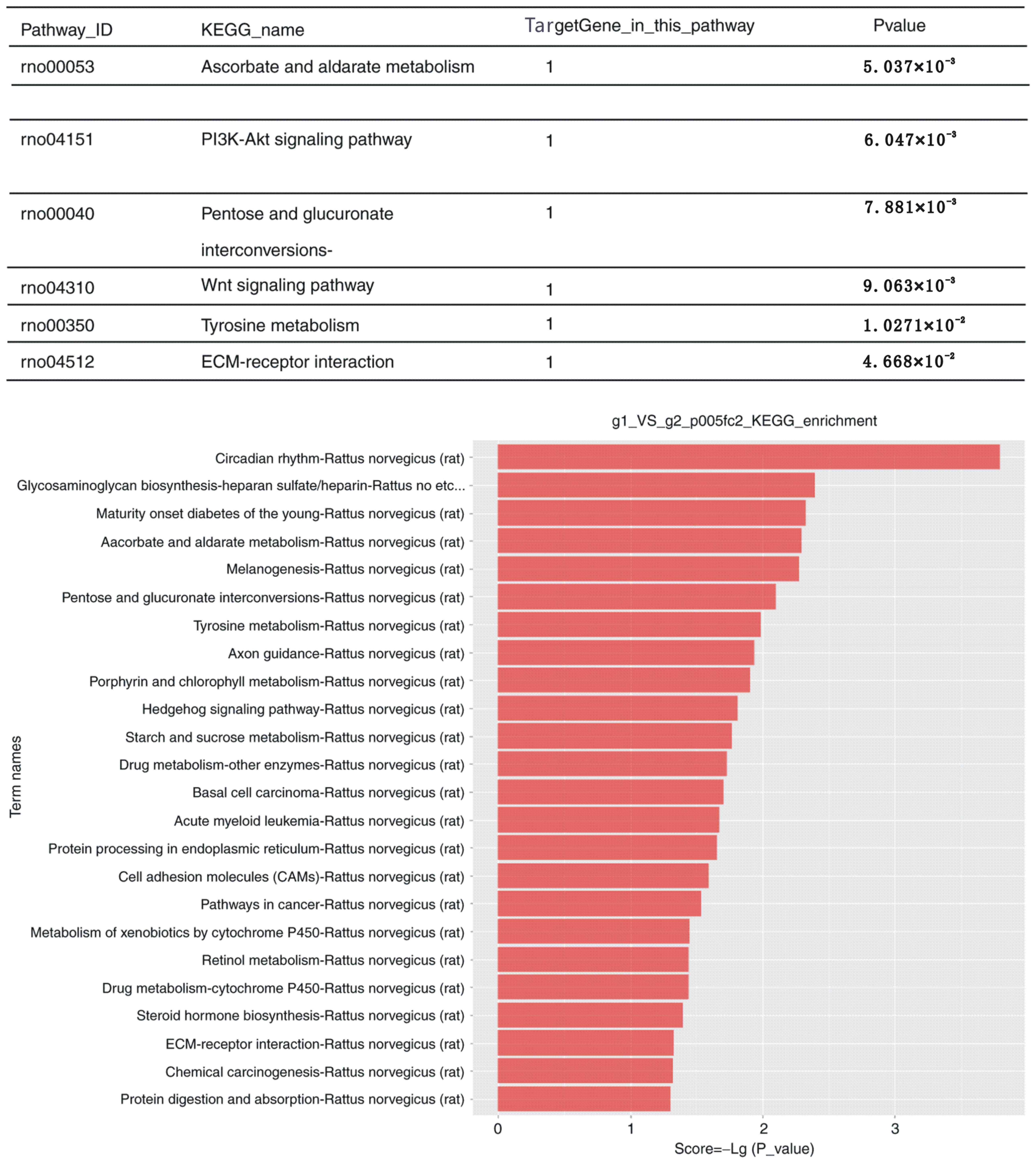|
1
|
Aletaha D, Neogi T, Silman AJ, Funovits J,
Felson DT, Bingham CO III, Birnbaum NS, Burmester GR, Bykerk VP,
Cohen MD, et al: 2010 Rheumatoid arthritis classification criteria:
An American college of rheumatology/European league against
rheumatism collaborative initiative. Arthritis Rheum. 62:2569–2581.
2010. View Article : Google Scholar : PubMed/NCBI
|
|
2
|
Marrelli A, Cipriani P, Liakouli V,
Carubbi F, Perricone C, Perricone R and Giacomelli R: Angiogenesis
in rheumatoid arthritis: A disease specific process or a common
response to chronic inflammation? Autoimmun Rev. 10:595–598. 2011.
View Article : Google Scholar : PubMed/NCBI
|
|
3
|
Kong X, Zhang Y, Liu C, Guo W, Li X, Su X,
Wan H, Sun Y and Lin N: Anti-angiogenic effect of triptolide in
rheumatoid arthritis by targeting angiogenic cascade. PLoS One.
8:e775132013. View Article : Google Scholar : PubMed/NCBI
|
|
4
|
Klareskog L, Catrina AI and Paget S:
Rheumatoid arthritis. Lancet. 373:659–672. 2009. View Article : Google Scholar : PubMed/NCBI
|
|
5
|
The Chinese herbal remedy Tripterygium
wilfordii Hook F in the treatment of rheumatoid arthritis. Ann
Intern Med. 151:I–36. 2009.
|
|
6
|
Goldbach-Mansky R, Wilson M, Fleischmann
R, Olsen N, Silverfield J, Kempf P, Kivitz A, Sherrer Y, Pucino F,
Csako G, et al: Comparison of Tripterygium wilfordii Hook F versus
sulfasalazine in the treatment of rheumatoid arthritis: A
randomized trial. Ann Intern Med. 151:229–240, W49-W51. 2009.
View Article : Google Scholar : PubMed/NCBI
|
|
7
|
Lu T, Zong M, Fan S, Lu Y, Yu S and Fan L:
Thioredoxin 1 is associated with the proliferation and apoptosis of
rheumatoid arthritis fibroblast-like synoviocytes. Clin Rheumatol.
37:117–125. 2018. View Article : Google Scholar : PubMed/NCBI
|
|
8
|
Fan D, He X, Bian Y, Guo Q, Zheng K, Zhao
Y, Lu C, Liu B, Xu X, Zhang G and Lu A: Triptolide modulates TREM-1
signal pathway to inhibit the inflammatory response in rheumatoid
arthritis. Int J Mol Sci. 17:4982016. View Article : Google Scholar : PubMed/NCBI
|
|
9
|
Liu C, Zhang Y, Kong X, Zhu L, Pang J, Xu
Y, Chen W, Zhan H, Lu A and Lin N: Triptolide prevents bone
destruction in the collagen-induced arthritis model of rheumatoid
arthritis by targeting RANKL/RANK/OPG signal pathway. Evid Based
Complement Alternat Med. 2013:6260382013.PubMed/NCBI
|
|
10
|
Lin N, Liu C, Xiao C, Jia H, Imada K, Wu H
and Ito A: Triptolide, a diterpenoid triepoxide, suppresses
inflammation and cartilage destruction in collagen-induced
arthritis mice. Biochem Pharmacol. 73:136–146. 2007. View Article : Google Scholar : PubMed/NCBI
|
|
11
|
Chen BJ: Triptolide, a novel
immunosuppressive and anti-inflammatory agent purified from a
Chinese herb Tripterygium wilfordii Hook F. Leuk Lymphoma.
42:253–265. 2001. View Article : Google Scholar : PubMed/NCBI
|
|
12
|
Glehr M, Fritsch-Breisach M, Lohberger B,
Walzer SM, Moazedi-Fuerst F, Rinner B, Gruber G, Graninger W,
Leithner A and Windhager R: Influence of resveratrol on rheumatoid
fibroblast-like synoviocytes analysed with gene chip transcription.
Phytomedicine. 20:310–318. 2013. View Article : Google Scholar : PubMed/NCBI
|
|
13
|
Li ZJ, Wang DQ, Hu SP, Wang XF, He Y and
Zhang ZJ: A gene chip study of ‘Jun Du Yan Bingzhi’ on liver in a
sepsis model of rat. Zhongguo Wei Zhong Bing Ji Jiu Yi Xue.
21:44–47. 2009.(In Chinese). PubMed/NCBI
|
|
14
|
Collins JF: Gene chip analyses reveal
differential genetic responses to iron deficiency in rat duodenum
and jejunum. Biol Res. 39:25–37. 2006.PubMed/NCBI
|
|
15
|
Saeki Y, Matsui T, Saisho K and Tohma S:
Current treatments of rheumatoid arthritis: From the ‘NinJa’
registry. Expert Rev Clin Immunol. 8:455–465. 2012. View Article : Google Scholar : PubMed/NCBI
|
|
16
|
Wang Y, Wei D, Lai Z and Le Y: Triptolide
inhibits CC chemokines expressed in rat adjuvant-induced arthritis.
Int Immunopharmacol. 6:1825–1832. 2006. View Article : Google Scholar : PubMed/NCBI
|
|
17
|
Yifan W, Dengming W, Zheng L, Yanping L
and Junkan S: Triptolide inhibits CCR5 expressed in synovial tissue
of rat adjuvant-induced arthritis. Pharmacol Rep. 59:795–799.
2007.PubMed/NCBI
|
|
18
|
Li S, Chen JW, Xie X, Tian J, Deng C, Wang
J, Gan HN and Li F: Autophagy inhibitor regulates apoptosis and
proliferation of synovial fibroblasts through the inhibition of
PI3K/AKT pathway in collagen-induced arthritis rat model. Am J
Transl Res. 9:2065–2076. 2017.PubMed/NCBI
|
|
19
|
Xiao C, Zhou J, He Y, Jia H, Zhao L, Zhao
N and Lu A: Effects of triptolide from Radix Tripterygium wilfordii
(Leigongteng) on cartilage cytokines and transcription factor
NF-kappaB: A study on induced arthritis in rats. Chin Med.
4:132009. View Article : Google Scholar : PubMed/NCBI
|
|
20
|
Jiao Y, Ding H, Huang S, Liu Y, Sun X, Wei
W, Ma J and Zheng F: Bcl-XL and Mcl-1 upregulation by calreticulin
promotes apoptosis resistance of fibroblast-like synoviocytes via
activation of PI3K/Akt and STAT3 pathways in rheumatoid arthritis.
Clin Exp Rheumatol. 36:841–849. 2018.PubMed/NCBI
|
|
21
|
Zhou J, Xiao C, Zhao L, Jia H, Zhao N, Lu
C, Yang D, Tang JC, Chan AS and Lu AP: The effect of triptolide on
CD4+ and CD8+ cells in Peyer's patch of SD rats with collagen
induced arthritis. Int Immunopharmacol. 6:198–203. 2006. View Article : Google Scholar : PubMed/NCBI
|
|
22
|
Evans SJ, Datson NA, Kabbaj M, Thompson
RC, Vreugdenhil E, De Kloet ER, Watson SJ and Akil H: Evaluation of
affymetrix gene chip sensitivity in rat hippocampal tissue using
SAGE analysis. Serial analysis of gene expression. Eur J Neurosci.
16:409–413. 2002. View Article : Google Scholar : PubMed/NCBI
|
|
23
|
Wang J, Jiang Z, Ji J, Wang X, Wang T,
Zhang Y, Tai T, Chen M, Sun L, Li X and Zhang L: Gene expression
profiling and pathway analysis of hepatotoxicity induced by
triptolide in Wistar rats. Food Chem Toxicol. 58:495–505. 2013.
View Article : Google Scholar : PubMed/NCBI
|
|
24
|
Wang J, Wang A, Zeng H, Liu L, Jiang W,
Zhu Y and Xu Y: Effect of triptolide on T-cell receptor beta
variable gene mRNA expression in rats with collagen-induced
arthritis. Anat Rec (Hoboken). 295:922–927. 2012. View Article : Google Scholar : PubMed/NCBI
|
|
25
|
Qu Y, Wu J, Deng JX, Zhang YP, Liang WY,
Jiang ZL, Yu QH and Li J: MicroRNA-126 affects rheumatoid arthritis
synovial fibroblast proliferation and apoptosis by targeting PIK3R2
and regulating PI3K-AKT signal pathway. Oncotarget. 7:74217–74226.
2016. View Article : Google Scholar : PubMed/NCBI
|
|
26
|
Wang M, Chen DQ, Chen L, Liu D, Zhao H,
Zhang ZH, Vaziri ND, Guo Y, Zhao YY and Cao G: Novel RAS inhibitors
poricoic acid ZG and poricoic acid ZH attenuate renal fibrosis via
a Wnt/β-catenin pathway and targeted phosphorylation of smad3
signaling. J Agric Food Chem. 66:1828–1842. 2018. View Article : Google Scholar : PubMed/NCBI
|
|
27
|
Ramirez-Bello J, Cadena-Sandoval D,
Fragoso JM, Barbosa-Cobos RE, Moreno-Eutímio MA, Saavedra-Salinas
MÁ, Valencia-Pacheco G, López-Villanueva RF and Jiménez-Morales S:
The VEGFA-1154G/A polymorphism is associated with reduced risk of
rheumatoid arthritis but not with systemic lupus erythematosus in
Mexican women. J Gene Med. 20:e30242018. View Article : Google Scholar : PubMed/NCBI
|
|
28
|
Murayama MA, Kakuta S, Maruhashi T,
Shimizu K, Seno A, Kubo S, Sato N, Saijo S, Hattori M and Iwakura
Y: CTRP3 plays an important role in the development of
collagen-induced arthritis in mice. Biochem Biophys Res Commun.
443:42–48. 2014. View Article : Google Scholar : PubMed/NCBI
|
|
29
|
Salliot C and van der Heijde D: Long-term
safety of methotrexate monotherapy in patients with rheumatoid
arthritis: A systematic literature research. Ann Rheum Dis.
68:1100–1104. 2009. View Article : Google Scholar : PubMed/NCBI
|
|
30
|
Malemud CJ: Negative regulators of
JAK/STAT signaling in rheumatoid arthritis and osteoarthritis. Int
J Mol Sci. 18:4842017. View Article : Google Scholar
|
|
31
|
Wang J, Li Y, Yang Y, Du J, Zhao M, Lin F,
Zhang S and Wang B: Systems pharmacology dissection of multiscale
mechanisms of action for herbal medicines in treating rheumatoid
arthritis. Mol Pharm. 14:3201–3217. 2017. View Article : Google Scholar : PubMed/NCBI
|
|
32
|
Tu S, Hu Y, Zeng K, Zhang M, Lai X and
Weichen Z: Effects of triptolide on the expression and activity of
NF-kappaB in synovium of collagen-induced arthritis rats. J
Huazhong Univ Sci Technolog Med Sci. 25:543–545. 2005. View Article : Google Scholar : PubMed/NCBI
|
|
33
|
Matta R, Wang X, Ge H, Ray W, Nelin LD and
Liu Y: Triptolide induces anti-inflammatory cellular responses. Am
J Transl Res. 1:267–282. 2009.PubMed/NCBI
|
|
34
|
Yang M, Huang J, Pan HZ and Jin J:
Triptolide overcomes dexamethasone resistance and enhanced
PS-341-induced apoptosis via PI3k/Akt/NF-kappaB pathways in human
multiple myeloma cells. Int J Mol Med. 22:489–496. 2008.PubMed/NCBI
|
|
35
|
Liu YY, Jiao ZY, Li W and Tian Q: PI3K/AKT
signaling pathway activation in a rat model of migraine. Mol Med
Rep. 16:4849–4854. 2017. View Article : Google Scholar : PubMed/NCBI
|
|
36
|
Clarimundo VS, Farinon M, Pedó RT,
Teixeira VON, Nör C, Gulko PS, Xavier RM and de Oliveira PG:
Gastrin-releasing peptide and its receptor increase arthritis
fibroblast-like synoviocytes invasiveness through activating the
PI3K/AKT pathway. Peptides. 95:57–61. 2017. View Article : Google Scholar : PubMed/NCBI
|



















